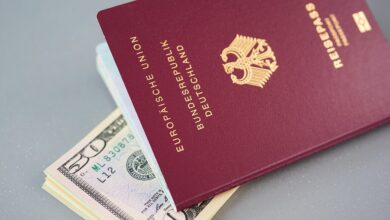Is It Cheaper to Live on the Islands or Mainland Greece? A Cost Comparison

Deciding whether to live on the islands or the mainland of Greece depends on your lifestyle preferences, priorities, and budget. While both options offer unique advantages, there are notable differences in living costs that can influence your decision. In this article, we’ll compare the cost of living on the Greek islands versus the mainland to help you determine which option aligns better with your financial goals.
1. Housing Costs
a. On the Islands
- Rent:
Renting on popular tourist islands like Santorini, Mykonos, or Crete tends to be more expensive due to high demand and limited space. For example:- A one-bedroom apartment in a central area of Santorini or Mykonos can cost €800–€1,500 per month .
- Smaller or less touristy islands (e.g., Paros, Naxos, or Rhodes) offer lower rents, typically ranging from €400–€700 per month .
- Buying Property:
Property prices on islands vary significantly based on location and popularity. Coastal properties or homes with sea views command premium prices. For instance:- In Santorini or Mykonos, expect to pay €3,000–€6,000 per square meter .
- On quieter islands like Ikaria or Samos, prices start at around €1,000–€2,000 per square meter .
b. On the Mainland
- Rent:
Rent is generally cheaper on the mainland, especially outside major cities like Athens and Thessaloniki. For example:- In Athens, a one-bedroom apartment ranges from €500–€800 per month , depending on the neighborhood.
- In smaller towns or rural areas, rent can drop to €250–€400 per month .
- Buying Property:
Property prices on the mainland are also more affordable compared to the islands. In Athens, prices range from €2,000–€4,000 per square meter , while in smaller towns, they may start as low as €800–€1,500 per square meter .
2. Utilities
Utilities tend to be slightly higher on the islands due to logistical challenges in transporting fuel and maintaining infrastructure.
a. On the Islands
- Electricity costs can be higher because many islands rely on generators rather than mainland power grids. Monthly utility bills for a standard household average €150–€200 , including electricity, water, and heating.
b. On the Mainland
- Utility costs are generally lower, averaging €100–€150 per month for a similar-sized household. Cities connected to the national grid benefit from more stable and affordable energy supplies.
3. Groceries and Daily Expenses
Grocery prices are relatively consistent across Greece but can vary slightly depending on proximity to suppliers.
a. On the Islands
- Food and household items may cost 10–20% more on the islands due to transportation fees. For example:
- A liter of milk might cost €1.30–€1.50 , compared to €1.10–€1.30 on the mainland.
- Fresh produce is often locally sourced on the islands, which can offset some costs.
b. On the Mainland
- Grocery shopping is marginally cheaper, particularly in larger supermarkets found in cities and towns. Prices for staples like bread, fruits, and vegetables are slightly lower.
4. Transportation
Transportation costs differ significantly between the islands and the mainland.
a. On the Islands
- Public transportation is limited on most islands, making owning a car or scooter essential. Ferry tickets for inter-island travel can add up quickly, especially during peak tourist seasons.
- Fuel prices are typically 5–10% higher on the islands due to shipping costs.
b. On the Mainland
- Public transportation systems in cities like Athens and Thessaloniki are efficient and affordable. A monthly metro pass in Athens costs around €30 .
- Owning a car is optional in urban areas, reducing overall transportation expenses.
5. Healthcare
Healthcare costs depend on whether you rely on public services or private insurance.
a. On the Islands
- Access to public healthcare facilities is more limited on smaller islands, requiring trips to larger hubs for specialized care. Private health insurance premiums may also be slightly higher due to fewer providers.
b. On the Mainland
- Larger cities have better-equipped hospitals and clinics, making it easier to access quality care. Private health insurance options are more competitive, potentially lowering premiums.
6. Entertainment and Lifestyle
Lifestyle costs can vary widely depending on your preferences.
a. On the Islands
- Dining out and entertainment are often pricier on tourist-heavy islands. For example:
- A meal at an inexpensive restaurant might cost €15–€25 .
- Nightlife and activities tailored to tourists can drive up expenses.
b. On the Mainland
- Eating out is generally cheaper, with meals costing €10–€15 at local tavernas. Cultural events, theaters, and museums are more accessible in cities like Athens and Thessaloniki.
7. Tax Implications
Property taxes (ENFIA) and other levies are calculated similarly across Greece but may feel more burdensome on the islands due to higher property values.
8. Summary: Which Is Cheaper?
| Category | Islands | Mainland |
|---|---|---|
| Housing (Rent/Buy) | More expensive (especially popular islands) | Generally cheaper, except in big cities |
| Utilities | Slightly higher | Lower |
| Groceries | 10–20% more | Marginally cheaper |
| Transportation | Higher ferry/fuel costs | Affordable public transport |
| Healthcare | Limited public options | Better access to facilities |
| Entertainment | Pricier on tourist islands | More affordable in cities |



